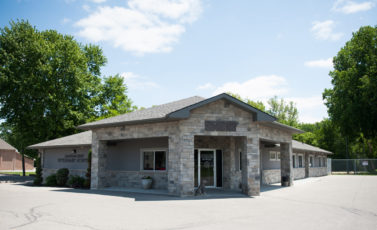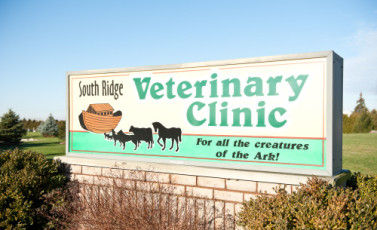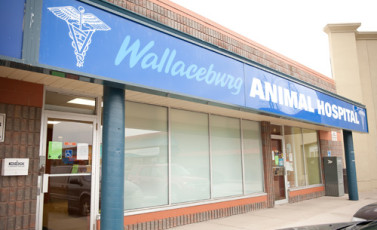When should I spay and neuter my pet?
As a general rule we recommend having your pet spayed/neutered at approximately 6 months of age. This recommendation can vary for our canine companions depending on their size and breed. With large or giant breed dogs the veterinarian may suggest that we wait until the pet is older and has had more time for growth and development.
How many nights will my pet stay in the hospital?
Your pet can stay up to two nights in the hospital (if your cat is having a declaw procedure at the same time, then three nights is recommended). At your pre-surgical appointment our veterinarian will perform a thorough physical exam to ensure there are no health concerns prior to anesthesia and answer any questions you may have. Our healthcare team will discuss the optional services we offer such as surgical and therapeutic laser, microchipping and pre-anesthetic blood testing. This appointment is typically scheduled for the day prior to surgery and your pet is admitted to the hospital at that time. We also keep your pet the night after surgery to ensure they have a quiet and complete recovery followed by a checkup the next morning to evaluate the surgical site and their vital signs before they go home.
Does my pet receive pain medication?
Yes. This is not an optional service. Although these procedures are considered “routine” they are still major surgery!! We provide all patients with pain control including an injectable form while under anesthesia and three days of pain medication to go home.
What steps do you take to provide the highest quality care to each surgical patient?
There are many ways that we strive to provide excellent quality care to our patients:
- Prior to surgery we recommend a pre-anesthetic blood screen that is used to assess your pet’s organ function and blood counts. This information allows us to customize the anesthetic plan to your pet’s needs.
- Your pet is intubated (breathing tube placed in wind pipe) for any general anesthetic procedure to receive oxygen and anesthetic gas.
- Your pet will receive intravenous (IV) fluids during anesthesia and surgery. This helps to control blood pressure and provides us with direct access in the event of an emergency. IV fluids help support and protect internal organs and flush anesthetic drugs from your pet’s system to promote a more rapid recovery.
- We have up to date monitoring equipment and a team of registered veterinary technicians (RVTs) who monitor your pet not only during surgery but also throughout recovery.
- Each patient receives their own sterilized surgical instrument pack.
- Your pet is sent home with an e-collar to prevent licking of the surgical site which can result in infection and other post-surgical complications.
- A complimentary post-surgical check is done 10-14 days after surgery to ensure their incision is healing well.
Do you offer payment plans for spays and neuters?
Yes. All of our clinics offer our Premium Pet Care Plans, which are yearly wellness packages that cover all services needed for the preventative health care of your pet. The cost of a spay/neuter can be incorporated into your pet care plan allowing you to make monthly payments over a 1-year term.
Please come in or call to schedule a tour of our facility and meet our team!
Request Appointment



